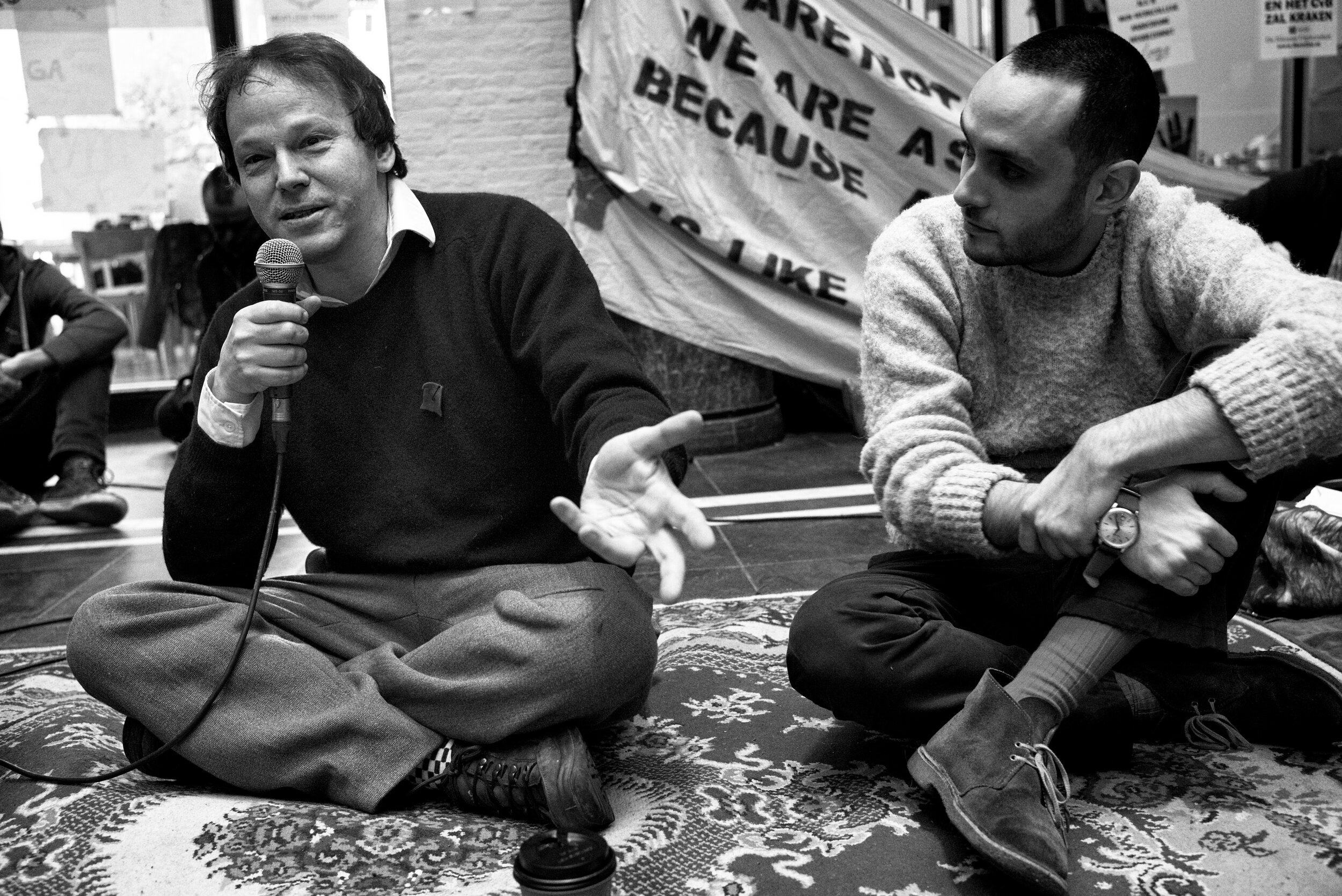David Graeber (1961-2020)
Nika Dubrovsky announced the death of her husband, David Graeber, on the 4th of September through a Twitter thread. Graeber died on September 2, 2020, aged 59, in Venice, Italy. Tributes and messages about his work as an anarchist, labour organiser, and scholar, circulated on all over social media.
David Rolfe Graeber was born to parents of radical persuasions - his mother, an organiser with the International Ladies' Garment Workers' Union, and his father, a veteran of the Spanish Civil War who fought on the Republican side. He described his childhood as "suffused with radical politics."
Graeber completed his undergraduate degree from the State University of New York at Purchase in 1984, and went on to complete his master's degree and doctorate at the University of Chicago. His Ph.D. thesis, supervised by Marshall Sahlins, explored magic, slavery, and politics and was titled ‘The Disastrous Ordeal of 1987: Memory and Violence in Rural Madagascar.’
In 1998, Graeber became assistant professor at Yale University, and taught there until May 2005, when the anthropology department prevented him from acquiring tenure. He believed that this decision was politically motivated. After this, he was blacklisted within US academia and found it increasingly difficult to secure an academic position, despite his stellar record in research and teaching. It wasn’t until 2008 that Graeber became a lecturer at Goldsmiths College of the University of London. In 2013, he assumed a professorship in Anthropology at the London School of Economics.
Graber was a prolific writer and published widely on various topics. His 2004 pamphlet, Fragments of an Anarchist Anthropology, explores areas of research that scholars could investigate in order to create a thorough body of anarchist social theory. In his book Debt: The First 5000 Years, his most popular work, he wrote, “debt Is the most efficient means ever created to take relations that are fundamentally based on violence and violent inequality and make them seem right and proper.” This book was written while he was organising with Occupy Wall Street in New York in the wake of the financial crash.
His work as an organiser and advocate for direct action is probably what set him apart the most from his academic peers. As a member of the Industrial Workers of the World union, he protested at the World Economic Forum in New York City in 2002. He supported the 2010 UK student protests, and organised some of the early Occupy Wall Street movement protests and is credited to have coined the term “We are the 99%.” He told the Guardian in 2015: “I always say the principle of direct action is the defiant insistence on acting as if one is already free.” Graeber remained devoted to his politics so much so that in 2019, he committed to never writing for the Guardian again after its treatment of Labour leader, Jeremy Corbyn, during the general election campaign and defended Corbyn against the charge of antisemitism. In fact, one of Graeber’s last tweets was highly critical of Extinction Rebellion UK’s assertion that it was “not a socialist movement.”
As one of the most influential thinkers of the contemporary Left, as well as his immense contributions to the field of anthropology, David Graeber set an example for us all through a steadfast commitment to socialist world-building. His integrity in supporting workers’ rights and movements, at very real jeopardy to his own career, will always be remembered. While his brilliance will survive through his scholarly works and the legacy of his political actions, Graeber will be sorely missed as a theoretician, teacher, and comrade.
- Sruti Basak
